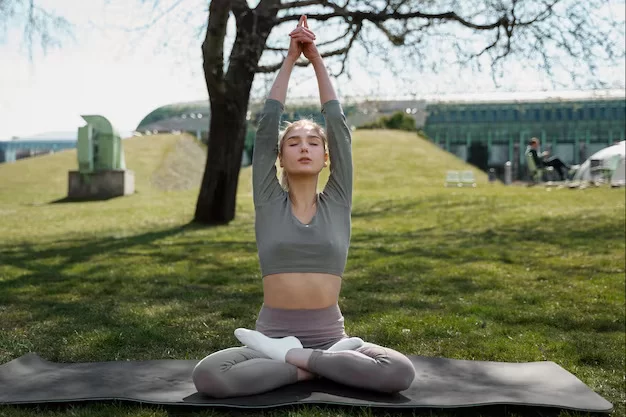
- Understanding-Mental-Clarity
- Yoga-Techniques-That-Enhance-Mental-Clarity
- Scientific-Insights-Into-Yoga-And-Cognition
- Real-Life-Examples-Of-Yoga-Boosting-Mental-Clarity
- Practical-Tips-For-Integrating-Yoga-Into-Daily-Life
1. Understanding Mental Clarity and Its Importance
Mental clarity refers to a state of mind where thoughts are clear, focused, and free from confusion or distraction. In our fast-paced, information-overloaded world, maintaining this clarity is increasingly challenging but crucial for productivity, creativity, and overall well-being. When mental clarity is compromised, it can lead to stress, anxiety, and difficulty making decisions. Understanding the roots of mental fog can help in exploring effective ways to enhance it, and this is where yoga plays a significant role.
The mental benefits of yoga extend beyond physical flexibility or strength. Yoga incorporates mindfulness, breath control, and meditative practices that work synergistically to sharpen the mind’s ability to focus. Unlike typical exercise routines that emphasize the body alone, yoga’s holistic approach integrates mind and body, making it a powerful tool for boosting mental clarity.
1.1 The Role of Mindfulness in Mental Clarity
At the heart of yoga lies mindfulness—the practice of being fully present in the moment. This awareness naturally reduces the clutter of distracting thoughts and promotes calmness. Through consistent practice, mindfulness nurtures the ability to observe thoughts without judgment, creating a clearer mental space.
1.2 Common Causes of Mental Fog Yoga Helps Address
Factors like chronic stress, poor sleep, and overworking the brain contribute to mental fog. Yoga’s calming effect on the nervous system helps lower cortisol levels (stress hormone), improves sleep quality, and recharges the mind. This comprehensive impact is why yoga is often recommended for enhancing cognitive function and mental clarity.
2. Yoga Techniques That Enhance Mental Clarity
Not all yoga practices equally contribute to mental clarity. Certain techniques are specifically effective due to their focus on breath, concentration, and relaxation. Here we dive into those methods and how they help the mind.
2.1 Pranayama (Breathing Exercises)
Controlled breathing techniques such as Nadi Shodhana (alternate nostril breathing) and Ujjayi breath balance the autonomic nervous system, reducing anxiety and improving oxygen flow to the brain. This physiological effect enhances alertness and mental calm, creating optimal conditions for clarity.
2.2 Meditation and Dhyana
Yoga’s meditation practices train the mind to stay focused, gradually eliminating mental distractions. Even short daily meditation sessions have been shown to increase attention span and memory retention, which are critical components of mental clarity.
2.3 Asanas (Physical Postures) That Promote Focus
Postures such as Tree Pose (Vrikshasana), Eagle Pose (Garudasana), and Warrior III (Virabhadrasana III) require balance and concentration. Practicing these poses improves proprioception and mental steadiness, reinforcing the mind-body connection essential for clear thinking.
3. Scientific Insights Into Yoga and Cognitive Function
Scientific studies provide compelling evidence that yoga practice benefits the brain. Neuroimaging research reveals that regular yoga increases gray matter density in areas associated with attention and memory. Additionally, yoga reduces activity in the amygdala, the brain’s fear center, contributing to reduced anxiety and clearer cognition.
3.1 Impact on Stress and Cortisol
Stress is a major disruptor of mental clarity. Research indicates yoga significantly lowers cortisol levels, which prevents the cognitive decline often linked to chronic stress. Lower stress also improves sleep quality, further supporting mental sharpness.
3.2 Enhanced Neuroplasticity
Yoga stimulates neuroplasticity—the brain’s ability to reorganize and form new neural connections. This flexibility underpins improved learning, memory, and problem-solving skills, all contributing to enhanced mental clarity.
4. Real-Life Examples of Yoga Boosting Mental Clarity
To understand yoga’s impact on mental clarity, consider the story of Sarah, a busy marketing executive. Sarah struggled with constant brain fog and struggled to meet deadlines. After incorporating a daily 20-minute yoga routine focusing on breathwork and meditation, she noticed a marked improvement in her focus and decision-making. She reported feeling more calm under pressure and more mentally agile during work meetings.
Another example is a popular online influencer who credits her improved mental clarity and creativity to her consistent yoga practice. She shares that yoga helped her overcome creative blocks by calming her restless mind and improving concentration.
These personal stories illustrate that the mental benefits of yoga are not just theoretical but practical and accessible for people from all walks of life.
5. Practical Tips for Integrating Yoga Into Daily Life to Boost Mental Clarity
Incorporating yoga for mental clarity does not require hours of practice or advanced skills. Here are actionable ways to weave yoga into a busy lifestyle:
5.1 Start with Short Sessions
Even 10 to 15 minutes of focused breathing or meditation can clear the mind. Beginners can gradually increase duration as they become more comfortable.
5.2 Choose Practices Suited to Your Needs
If anxiety is a barrier to clarity, prioritize pranayama and calming meditation. For improving focus, incorporate balance postures that demand attention.
5.3 Create a Dedicated Space
Having a quiet, comfortable area to practice yoga encourages consistency and helps the mind associate the space with relaxation and clarity.
5.4 Use Trusted Resources
For those looking to deepen their practice or find products and services tailored to their needs, Free Yoga Links offers carefully curated recommendations. This resource helps users discover the most suitable yoga-related products, classes, and tools to support their journey toward mental clarity.
Embracing yoga as a lifestyle approach can transform not only your mental clarity but your overall quality of life. The integration of mindful movement, breath control, and meditation offers a powerful toolkit for maintaining a sharp, focused mind amidst modern challenges.








